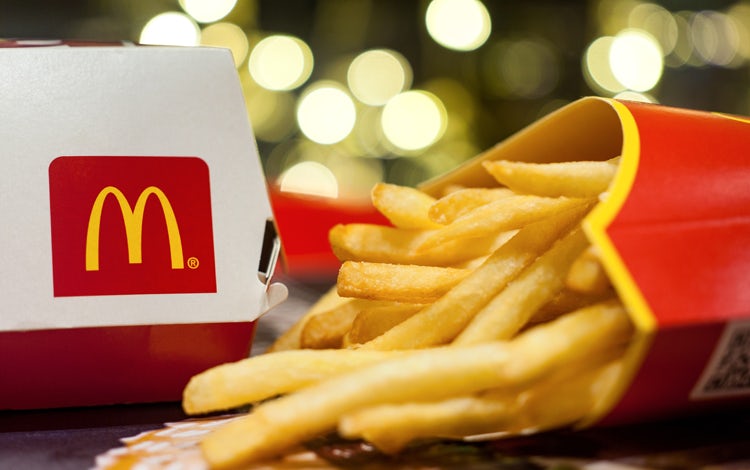McDonald’s global CMO on turning around its ‘cultural wallpaper’ image
McDonald’s global CMO Morgan Flatley explains how the brand’s ‘Famous Orders’ campaign helped transform its marketing.
 McDonald’s global CMO Morgan Flatley has admitted the brand was “a little meaningless” to consumers back in 2019.
McDonald’s global CMO Morgan Flatley has admitted the brand was “a little meaningless” to consumers back in 2019.
Speaking at the Cannes Lions Festival of Creativity yesterday (20 June), she said the fast food giant has been doing a lot to remedy this and move away from what was described by the host as the brand’s “cultural wallpaper” image.
One of the big aims at this time was to make the brand “really stand for something”, as she said McDonald’s was creating “a tonne of content” but a lot of it was failing to hit home.
Part of the problem was the fact McDonald’s is seen as an “enormous sales organisation”, she said. And when she joined in 2017 she ended up “spending a lot of time not wanting to disrupt that”.
You can end up trying to talk to everyone. And you end up talking to no one.
Morgan Flatley, McDonald’s
But she admitted the brand had been “so focused on the operational components” that it had neglected customer connections.
“You can end up trying to talk to everyone. And you end up talking to no one,” she added on how McDonald’s was targeting its consumers.
At this time McDonald’s began working with agency Wieden+Kennedy after a nine-month pitch process.
One of the first campaigns the two organisations worked on together was ‘Famous Orders’, which was unveiled at the 2020 Super Bowl.
As part of the campaign, celebrities from Whoopi Goldberg and Kanye West to Millie Bobby Brown revealed their McDonald’s orders, part of the brand’s plan to show customer relationships by exploring the “little interesting obsessions” people have with McDonald’s food.
Later in the year rapper Travis Scott got involved in the campaign in the US, and his McDonald’s meal (a quarter pounder with bacon and salad, medium fries with barbecue sauce, and a medium Sprite) was sold, alongside a merchandise collection of 57 pieces.
His connection to the brand could have become an issue for McDonald’s a year later when 10 audience members at Scott’s Astroworld Festival concert were killed by a stampede of fans. A further 300 were injured.
McDonald’s rolls out brand platform to showcase its ‘positive impact’ on people and planet
When questioned on whether situations like this impact how McDonald’s navigates its brand partnerships, Flatley said the fact McDonald’s built the Famous Orders platform with a number of celebrities helped mitigate the impact of tragedy on the brand.
If Scott was the only celebrity involved in the campaign the disaster “would have become synonymous” with the brand, she added.
“My advice to marketers would be don’t just take this risk once, take risks over and over again,” she said. “Because then you do open the brand up.
“The platform extended beyond just one person and it became a platform that lots of celebrities can fit into.”
Read more: McDonald’s names new global CMO in wider leadership reshuffle
Giving the agency perspective, Wieden+Kennedy’s global CEO Neal Arthur, who was on stage alongside Flatley, said he’s “never seen celebrities as synonymous with the brand” when working with clients. More broadly, he believes brands need to tap into each celebrity’s “authentic” relationship with the company.
“If we said everybody that engages with the brand has to be perfect, we’d never make a thing,” he added.
The Famous Orders campaign taught the McDonald’s team about the “willingness to take risks” said Flatley, reflecting on more than two years of the platform. It had the impact of helping the organisation “understand the power” of ideas, and led to consumers’ reappraisal of the brand.
She added that there was an unintended benefit too in the power it gave employees. Flatley mentioned a story from a friend on the operational side of the business who said colleagues in restaurants were “proud” to leave the buildings in their uniforms, and “hadn’t in the past”.
It ties in to the “power and magic” of the brand, she added, which she said McDonald’s “lost” when it stopped focusing on “why people love” the brand.







Comments